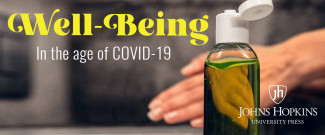
Johns Hopkins UniversityEst. 1876
America’s First Research University
Now Browsing:
Alcoholism and COVID-19


By Michael S. Levy, Ph.D.
An alcohol use disorder is often referred to as a chronic relapsing illness. Especially among people who have recently achieved abstinence, it is not uncommon for a person to start drinking again. To avoid a relapse, individuals learn about their triggers, or the things that could lead them to drink again. They learn how to cope with their triggers in healthy ways, or even to avoid them completely when possible. Triggers can include people, places, things, thoughts, and feelings. While reasons for relapse are unique to each person, we have learned much about triggers and some are quite common.
The COVID-19 pandemic has created multiple stresses and alterations in all our lives. Unfortunately, many of the changes caused by this pandemic align with some of the well-known triggers that can lead to a relapse. If people can be prepared, the chance of a relapse will be lessened. In this article, I want to share how the COVID-19 pandemic could impact a person’s recovery as well as to offer advice regarding healthy ways to cope with these potential triggers.
Disruption of Ongoing Treatment
Before even reviewing triggers, due to social distancing guidelines, many therapists have begun to see people via telehealth instead of face-to-face, and many therapeutic group programs have completely been placed on hold. Self-help meetings have also stopped meeting in-person, although some have begun to hold meetings remotely. While meeting in this fashion feels right for some, for others, this may not fit their needs.
This change can obviously impact a person, especially for a person new in recovery. Treatment can be invaluable support and help people to manage issues that arise. While there is no perfect way to address this, I encourage people to at least check out an online format. Over time, they may find that meeting their therapist this way is not so different and the support that they receive will still be valuable. If an online meeting does not feel right, there are also online chatrooms that may feel more comfortable. The key is to be flexible.
Triggers
Social isolation and loneliness –The lifestyle change required to stop drinking typically entails a change in one’s social support system. Friendships that involved heavy drinking often need to be broken and it can be challenging to develop new relationships. Unfortunately, this takes time and a big reason for a relapse is feelings of isolation and loneliness. As a result, when people first stop drinking, they are encouraged to reach out to others and to make human connections.
The COVID-19 pandemic forces many of us to be more isolated, and this can be particularly hard for most everyone, but especially for someone new in recovery. Instead of allowing these feelings to lead back to drinking, I strongly encourage people to make extra efforts to reach out to their family and friends. Even if they cannot see them, keeping in contact with them can help to ameliorate those feelings of being alone. One can even make plans to check in regularly to keep themselves accountable. Video chats can also be used to help achieve a feeling of closeness and connection.

Boredom – Not knowing what to do with oneself is often a huge trigger for a return to alcohol. I hear about this all the time among people I work with and research I have done supports that boredom is a feeling that frequently results in a relapse. When people first stop drinking, they can often feel like a fish out of water. Drinking has played such a significant part of their lives and so much time and social activities have centered around drinking. As a result, what do with time can be very challenging. People are encouraged to keep busy and to fill their days with activities that do not include drinking.
The COVID-19 pandemic has brought many social activities to a screeching halt, which can create a void in a person’s life. Instead of allowing boredom to set in, it is critical to find new things to do. Now would be a great time to attend to home projects that were never done, such as cleaning out a closet, organizing a cabinet, or working on a garden project. People should spend more time on things they enjoy doing or consider getting involved in new leisure activities that were never done, such as drawing, painting, exercising, writing, or learning a new skill, to name just a few ideas. Be flexible and expand the comfort zone. For example, if your fitness center is closed, think of another exercise routine you can do in our home. Very simply, don’t allow boredom to set in, which could lead you to ruminate about drinking again.
Stress – Another feeling that can cause a return to drinking is anxiety or stress. Alcohol is frequently used to relieve worry or other uncomfortable feelings, so when such feelings are experienced, it can elicit a desire to drink. In fact, emotional pain is often reported as being the reason for using alcohol, as if it truly justifies drinking. As individuals who have struggled with alcohol must internalize, there is no good reason to drink, although that simple concept can easily be forgotten.
The COVID-19 pandemic has created stress for many people. Some have lost their jobs, are struggling financially, are coping with having to care for their children without help, and others may be concerned about the health of their loved ones and themselves. Furthermore, no one knows when life will return to normal. To cope with this anxiety, it needs to be remembered to stay focused in the present and in the day, and to try not to worry about the future. Catastrophizing about what could be will only make one more anxious. The Alcoholics Anonymous saying “one day at a time” can be extremely beneficial.
It is also important to remember that while we may not be able to change a stressful situation, we can change how we view it. Without dismissing what has occurred, our perception of it can make all the difference. In this regard, a William James quote, who was the father of American Psychology, is most relevant: “The most amazing discovery of my generation is that a human being can alter his life by altering his attitudes.” How we perceive and interpret a stressful circumstance will determine how stressed we get by it. If viewed as a challenge as opposed to a crisis, stress levels will be kept lower.
Thinking about the positive things in your life and what you are grateful for can help to counter undue worrying. Engaging in fun activities can also be used to distract yourself from your concerns. Most importantly, always keep in mind that alcohol will not make anything better. Do not fall into the trap of thinking that alcohol will help because of the stress in the world, it doesn’t matter whether you drink. While drinking may be a short-term fix, it is a long-term problem, which must be remembered.
While the COVID-19 pandemic can impact individuals who are trying to stay abstinent from alcohol, being aware of this strain and taking steps to cope with it can help to avoid a relapse. Returning to drinking will only make everything worse and that must never be forgotten.
Michael S. Levy, PhD is a clinical success manager at DynamiCare Health and maintains a private practice in psychotherapy. He is the author of Take Control of Your Drinking.
Login to View & Leave Comments
Login to View & Leave Comments


